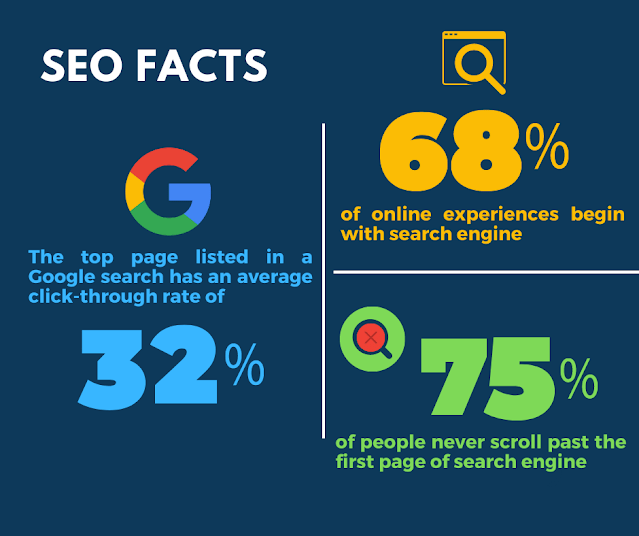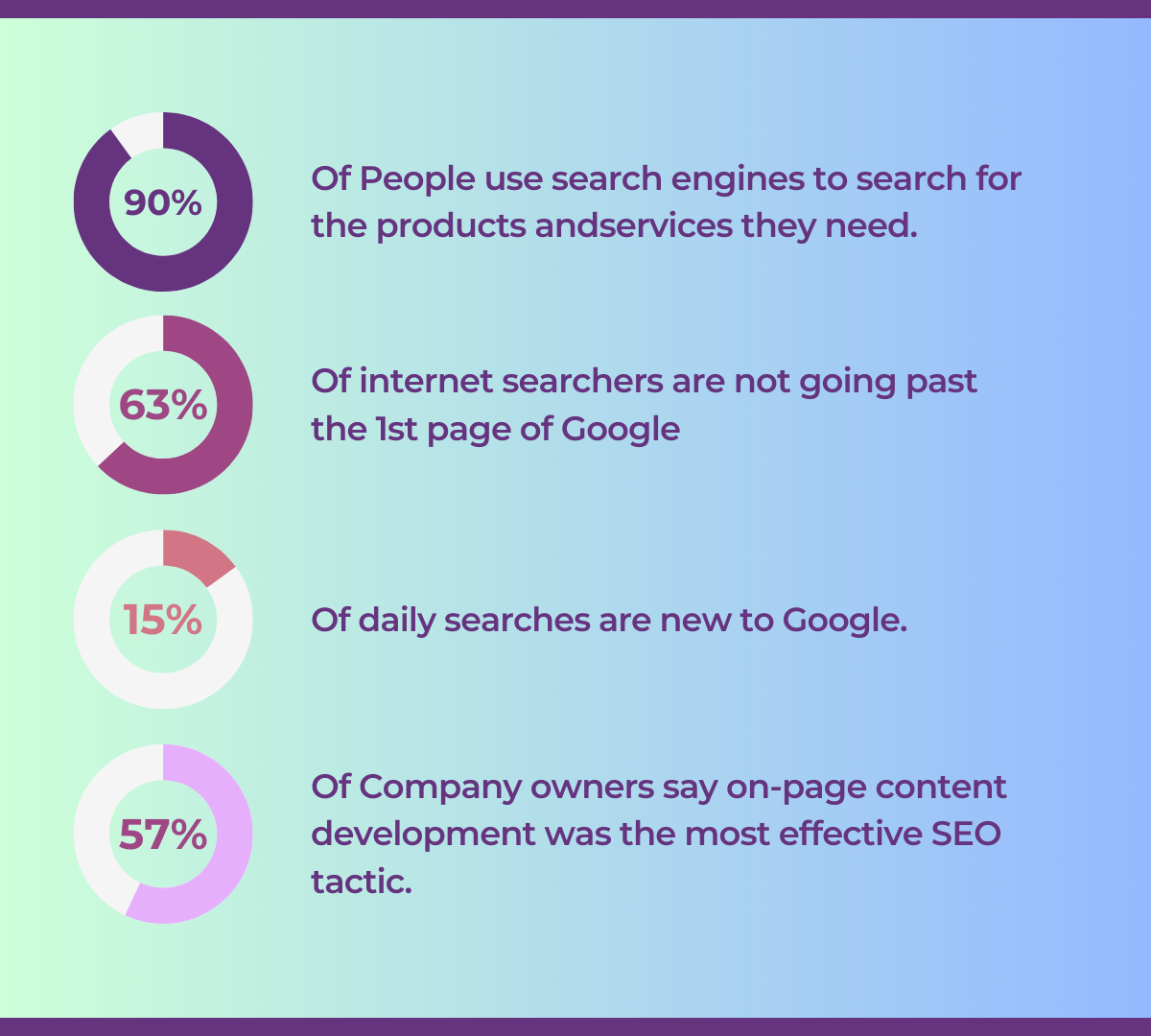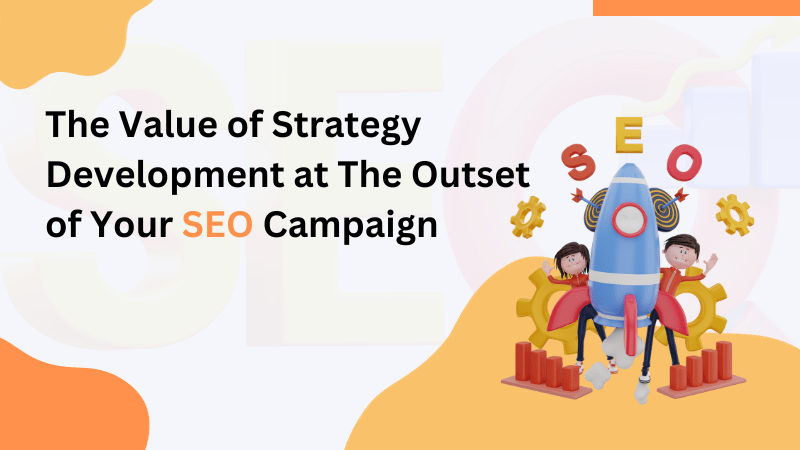“Even if your strategies are automated, executing them randomly can still be inefficient. Make sure that this guide is followed in every SEO campaign.”
As curated and repetitive content overtakes the internet, it’s critical to create an actual SEO plan that raises the chances that your website will be able to unlock search engine visibility and improve organic ranks and traffic.
Although many marketers are aware of the fundamentals of SEO, not all of them understand the rationale behind the techniques.
I anticipate a significant increase in the production of content as AI develops. There will be some good stuff among the many decent things.
An intriguing new environment will continue to be created by the volume of information, the capacity to complete some tactical tasks more quickly, and the drive to accelerate SEO operations overall.
Planned actions that lead to desired results are nevertheless crucial. Perhaps even more significant than before.
Although we can now test, deploy, and go live more quickly, are the things we’re doing really having an impact on the marketing and business objectives as a whole and generating a quantifiable return on investment? or just making more sounds and movements?
In this post, we’ll examine the factors that make devoting time and energy to the creation of an SEO plan essential for companies or people hoping to advance their marketing initiatives.
An SEO Strategy: What Is It?
- A well-thought-out plan outlining how you will use SEO to support your marketing objectives is known as an SEO strategy.
- Although anyone may publish material that generates traffic, you can make sure that the traffic you’re generating is qualified by using an SEO strategy.
- Your strategy is the rationale that guides your tactics’ how.
- Let’s say you want to enhance the quantity of leads that Audience A produces.
- One of your strategies can be to drive more visitors to a certain topic cluster on your website.
- Next, strategies could involve creating more blog posts aimed at top-of-funnel visitors or improving the content on your bottom-of-funnel evergreen pages inside that cluster.
- After that, you’ll need to use a number of strategies to make sure your content ranks highly, which will complement your content development plan.
- As you can see, tactics and strategy are mutually dependent and supportive.

Source: ethicsinfotech.in
Why Is Developing an SEO Strategy Important?
- Before your SEO campaign even goes live, a strategy can help it succeed.
- Possessing one will allow you to take all of the various strategies and create a strategy that synchronizes those goals with techniques centered around particular key performance indicators (KPIs).
- No two firms are the same, and the same is true of marketing techniques.
- A B2B website that focuses on lead generation has a very different SEO strategy than an e-commerce one.
- Useful for keeping work organized are checklists.
- However, if you perform “checklist SEO” by going through a list of “best practices” without considering how they apply to your particular business, you probably won’t achieve the whole range of outcomes you want.
Optimizing Resources
- Implementing SEO takes time and work.
- A poorly thought-out plan could result in a dispersion of scarce human and time resources, wasted effort, and subpar outcomes.
- By concentrating on the most effective strategies that yield the highest return on investment, strategic planning enables you to allocate resources as efficiently as possible.
Combining Your Marketing Initiatives
- The outcome of your strategy creation work, an SEO plan, may be incorporated into all of your channels to produce a more unified marketing approach.
- Using an integrated approach makes sure that your efforts aren’t being duplicated across several channels.
- No matter where in the funnel your audience is engaging, your messaging will be consistent across all of your platforms, strengthening the bond between your business and them.
- In the end, the outcomes will improve your entire marketing objectives, consumer interaction, and internet presence.
Keeping Up With The Trends
- Because search engine algorithms are always changing, a strategy that works today might not work tomorrow.
- Keeping up with algorithm changes, staying ahead of market trends, and modifying your approach to stay competitive are all part of an SEO plan.
- Adopting a proactive approach can offer you a considerable edge over rivals that fall behind.
- Although I advise putting your strategy in writing in a plan, it must be an active, dynamic document. As the tactics are put into practice and lessons are used to fine-tune the approach, it must be flexible.
- Documentation is essential for maintaining the strategy and tactics’ objectivity, but it’s also critical to adapt and stay ahead of the curve rather than treating the plan like a checklist and dismissing signs that it needs to be improved.

Establishing Credibility And Authority
- An effective SEO approach raises your brand’s authority and trust in addition to improving search ranks.
- By continuously providing your audience with insightful and timely material, you gain their trust and position yourself as a thought leader in the field.
- Credible material combined with higher search ranks will boost the confidence of potential customers and direct them toward your desired outcome.
- Sure, there can be fast wins, and you can try to focus on phrases and themes that are near the end of the customer journey or the bottom of the funnel.
- If you’re properly optimized for them, those can bring in a lot of leads and sales for your business.
- But you can also boost lifetime value, stand out from the competition, and raise awareness when your target consumers are still in the research stage or just starting out on their journey by focusing on brand building.
- You should develop a brand identity that highlights the distinctive qualities of your goods and services as well as their value proposition unless you’re just competing on price.
Making Decisions Based on Data
- The emphasis on data-driven decision-making is one of the biggest benefits of creating an SEO strategy.
- In a strategic approach, key performance indicators (KPIs) are tracked, analyzed, and interpreted in a controversial manner.
- By analyzing the data, you can learn more about the behavior of your audience by seeing the things they do on your website.
- By identifying what works and what doesn’t, data insights help you make wise decisions that will continuously optimize your SEO efforts.
How To Assess Your Strategy’s Effectiveness
- You may quickly assess the effectiveness of your overall marketing strategy and SEO initiatives with the aid of Google Analytics 4.
- With the use of GA4’s tools and reports, you can monitor the key performance indicators (KPIs) for visibility, engagement, and conversion that are most important to you and determine how your SEO efforts are affecting your company’s objectives.
- You can assess your success using several metrics by utilizing reports from Google Search Console, Landing Page, Conversion, and Traffic Acquisition.
- To keep ahead of the competition and make sure you’re leading the trend rather than following it, regular examination of these reports is essential.
- You may continuously optimize your SEO approach and make better decisions with the help of insightful data.
In summary
As we just mentioned, SEO is evolving.
The status quo has been upset by AI, which is here. I wholeheartedly support the beneficial developments that have occurred and will persist in order to enable us to act more quickly and intelligently.
However, one thing about SEO that hasn’t altered is the possibility of becoming distracted.
There are numerous resources that discuss the components of effective SEO. Yes, most of them are highly recommended and validated. Are they all appropriate for your company or brand? Probably!
Even if your strategies are automated, executing them blindly can still be a waste.
There isn’t a single SEO strategy that works for everyone.
Yes, a lot of your methods will be similar, but it matters how much importance you place on them, how well they fit your present situation, and how you tie them into your overall strategy to take advantage of business chances and goals.
By standing by your plan and receiving feedback on it, you can make necessary revisions as you go through the SEO process and, in the end, transform an apparently arbitrary and unending process into one that can be quantified, enhanced, and validated.
For more information and free consultation, please contact us:




